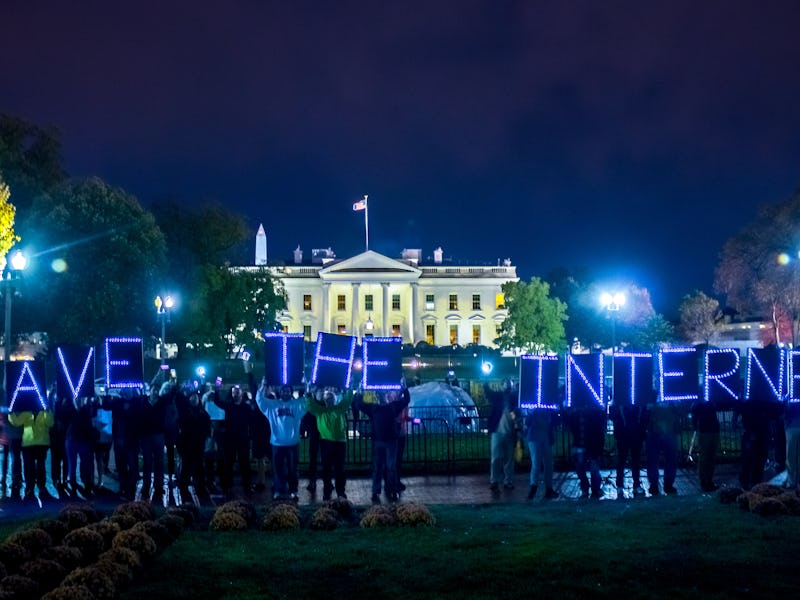The FCC Prepares to Butcher Net Neutrality: 5 Things to Know
The fight for an open internet continues.

On Wednesday, FCC chairman Ajit Pai announced plans to roll back another set of Obama-era regulations on internet service providers, marking another serious blow to “net neutrality,” the idea that no website should take priority over another.
If Pai’s proposal, which he’ll release in full on Thursday, is passed, it will allow ISPs to both block content and charge websites to load quickly. In the words of the Electronic Frontier Foundation, a nonprofit that advocates for civil liberties online, net neutrality “protects online competition, free speech, and privacy from interference by internet service providers like Comcast and AT&T.”
This threat has been in the offing since President Donald Trump’s election, but what does it really mean for you? Here are five things you need to know about Pai’s proposed changes.
5. Why this matters for internet innovators
Pai’s proposal will allow providers to make it easier and faster for people to access certain websites if those sites pay up to the ISP. This is called “paid prioritization” because it incentivizes customers to use some websites above others, based on how much capital that website owns. These changes will make it harder for smaller sites to compete with bigger ones. That means a higher barrier to entry for startup websites and platforms.
4. Why this matters for internet users
Your ISP could make it faster for you to access its preferred websites and platforms. A completely hypothetical example: Verizon is also an ISP and it owns the content streaming service Go 90, which streams European soccer, original programming, news, all sorts of stuff you want to watch. If it wanted, Verizon could increase the buffering time on competing streaming services. So if Verizon is your ISP, you’d be set on Go 90, but HBO Go or other services might not load so quickly.
This may not matter so much for big companies like Netflix and HBO Go, but it does matter for smaller sites that can’t afford to pay ISPs for fast access. Netflix acknowledged as much back in January, saying: “Our companies should be able to compete with incumbents on the quality of our products and services, not our capacity to pay tolls to internet access providers.”
FCC Chairman Ajit Pai on April 25.
3. Will this actually happen?
There are currently twice as many Republicans as Democrats on the FCC, so it’s quite likely that this deregulatory measure will pass. However, that doesn’t preclude the possibility of activist energies — which are already taking off — putting a stop to the measure, especially since net neutrality has such strong bipartisan support (among civilians; not so much within the government). If it is passed, Pai’s proposal may also face legal challenges, since the net neutrality rules presently on the book were approved by a federal appeals court.
2. How long until it’s put to a vote?
Several months, at least. The proposal isn’t in its final form yet; it needs comments and revisions first. On May 18, the FCC is expected to vote on beginning the process toward an actual vote.
1. Is the FCC doing anything else to threaten the open internet?
In March, the commission voted to allow ISPs to sell users’ personal data and information without users first “opting in.” That was just the start of what will likely be a prolonged campaign against a free and open internet under the Trump administration.